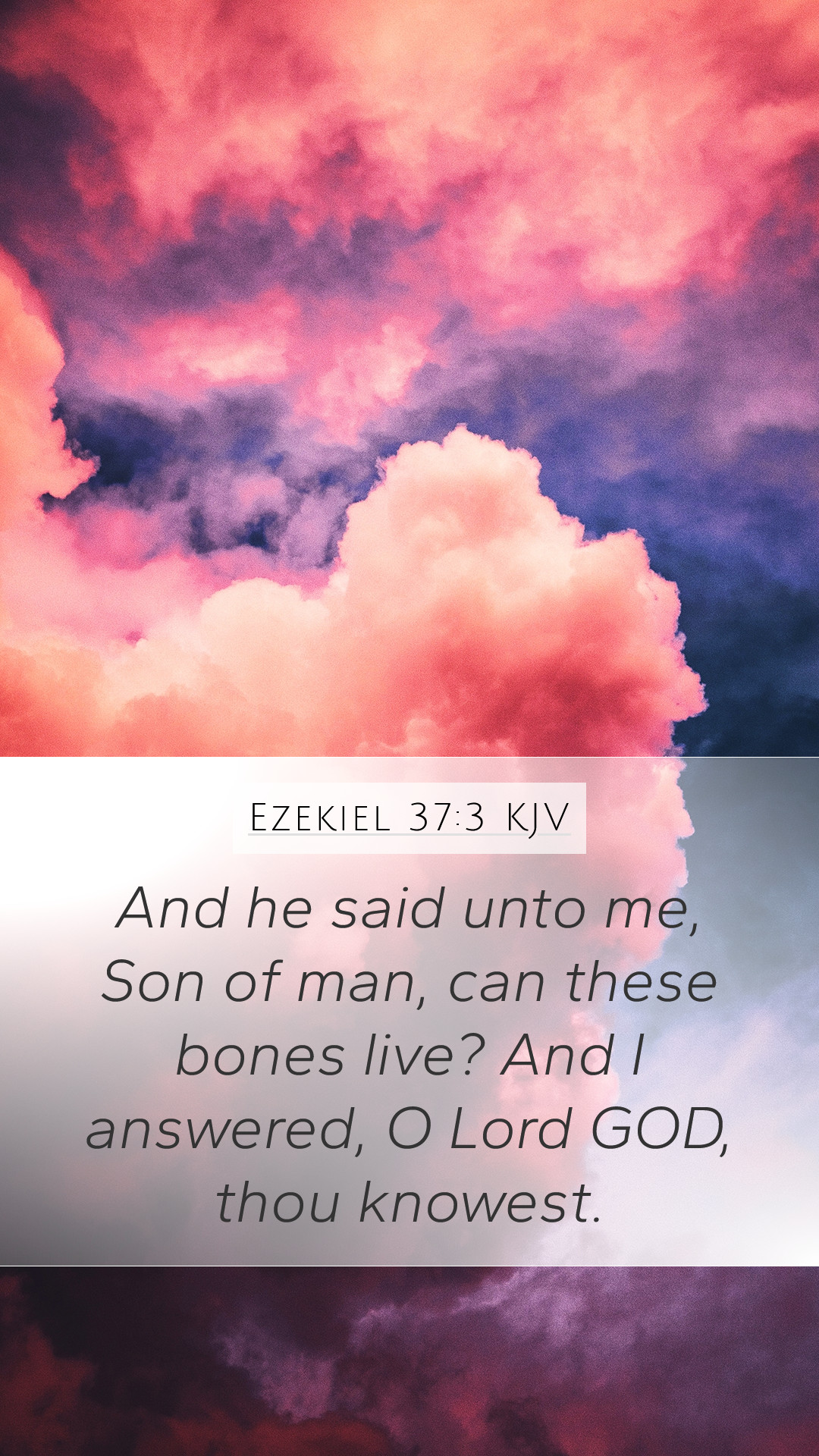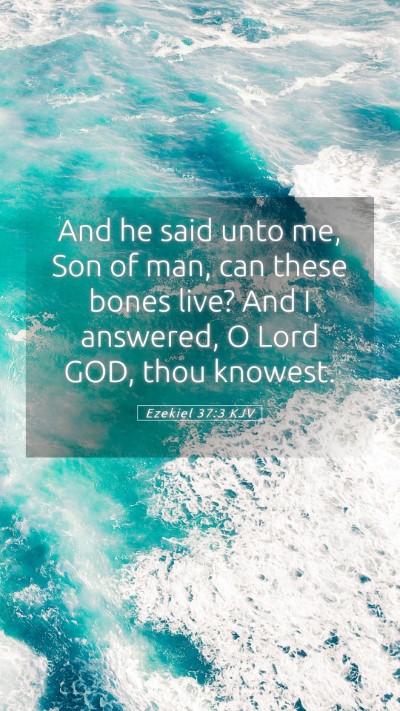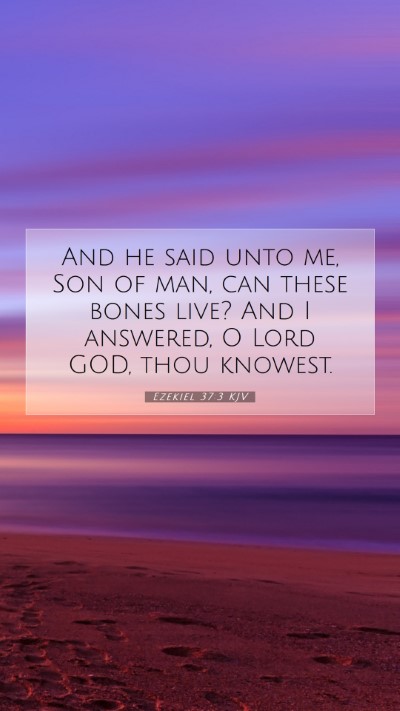Ezekiel 37:3 - Bible Verse Commentary and Interpretation
The verse Ezekiel 37:3 states, "And he said unto me, Son of man, can these bones live? And I answered, O Lord God, thou knowest." This verse occurs within a profound vision that the prophet Ezekiel experiences, relating to the restoration of Israel. In seeking to understand this scripture, various public domain commentaries offer valuable insights into its meaning.
Contextual Background
To fully grasp the significance of this verse, it is essential to consider the historical context of Ezekiel's prophecy. At the time, Israel was in exile, their nation appearing lifeless, like dry bones. The imagery of dry bones represents despair, hopelessness, and the need for restoration. Ezekiel is called to vision and encouraged to speak to these bones, symbolizing the potential for revival.
Key Insights from Commentaries
-
Matthew Henry:
Henry emphasizes the importance of faith in God's power. The question posed to Ezekiel is reflective of God's omniscience. Ezekiel's response indicates an acknowledgment of God's sovereignty, underpinning the theme that only God can bring life where there is death.
-
Albert Barnes:
Barnes highlights the dialogue between God and Ezekiel as an invitation for the prophet to express his understanding of God's capabilities. The phrase "thou knowest" signifies the depth of trust Ezekiel has in God’s ability to revive Israel, underscoring the relationship between God and His people.
-
Adam Clarke:
Clarke points out that this verse illustrates the perplexity of the human condition when faced with what seems impossible. The bones symbolize Israel's state, and God's question challenges Ezekiel (and the readers) to recognize God's ultimate authority over life and death, suggesting an impending restoration of hope.
Theological Implications
This verse raises profound questions about faith and the restoration process—both physically and spiritually. It invites readers to ponder the nature of miracles and the confidence one can have in God to revitalize hopeless situations. The implications extend to understanding prophecy and God's promise to His people.
Application of the Verse
Understanding this passage encourages believers to trust in God's ability to bring change in seemingly dead areas of life. It serves as a reminder that no situation is beyond God's reach, and one can be assured of His sovereign plan for rejuvenation.
Related Bible Cross References
- Isaiah 26:19: "Thy dead men shall live, together with my dead body shall they arise." This reference correlates with the theme of resurrection and hope.
- Romans 4:17: "...even God, who quickeneth the dead, and calleth those things which be not as though they were." This reinforces God's power over life and death.
- John 11:25-26: Jesus said, "I am the resurrection, and the life: he that believeth in me, though he were dead, yet shall he live." Here, believers are assured of life through faith in Christ.
Conclusion
The exploration of Ezekiel 37:3 unveils layers of meaning that reflect on the nature of faith, God's sovereignty, and the promise of restoration. With its rich insights from well-respected commentaries and cross-references to other scripture, this verse provides a profound foundation for understanding biblical themes of hope and revival.
For further study, consider engaging with Bible study groups or utilizing online Bible study tools that focus on understanding difficult Bible passages and the significance of Old Testament prophecies. This can enhance your Bible study insights and equip you with the necessary knowledge to apply these teachings to your life.


